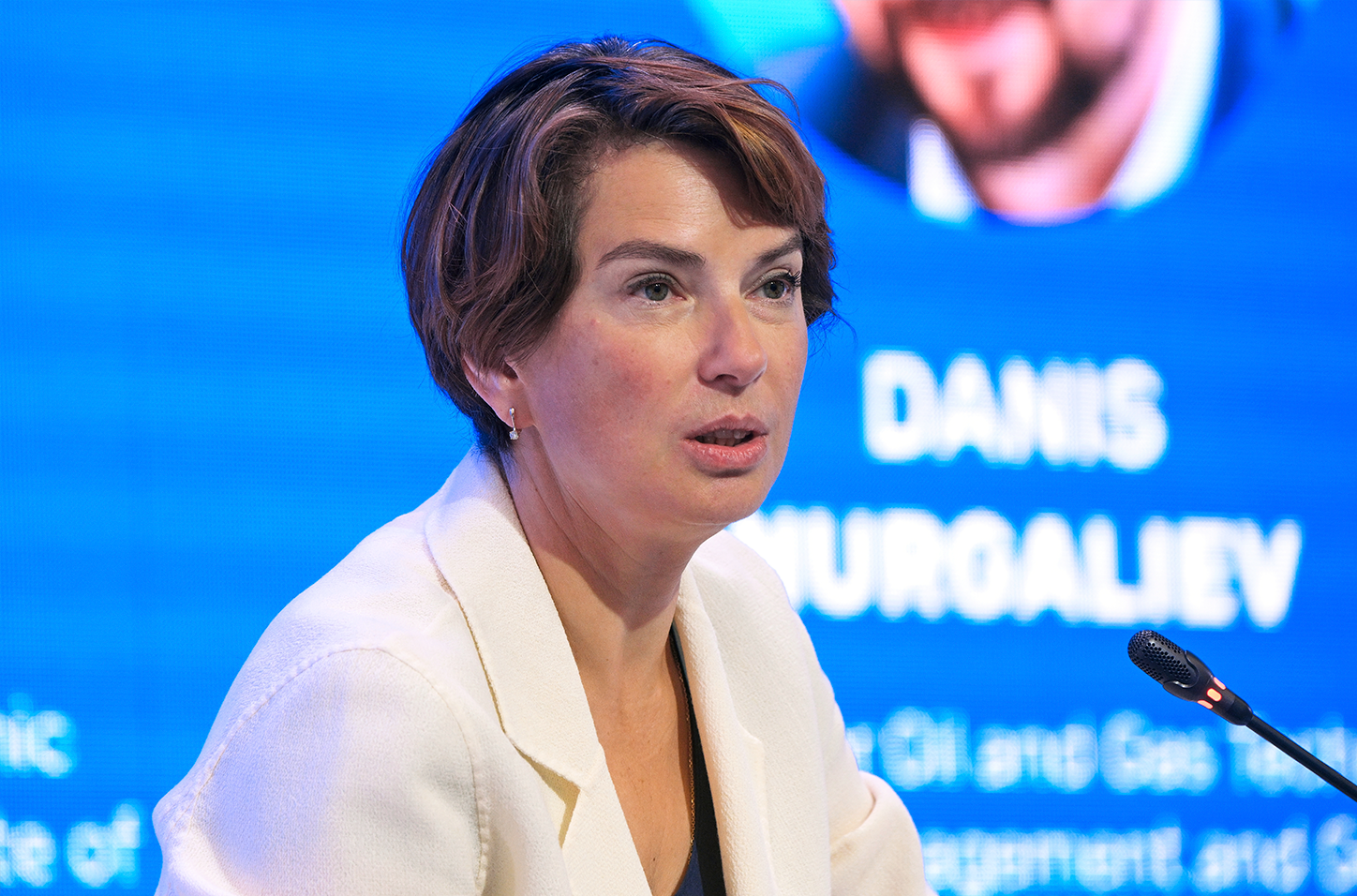Новости 04.10.2024
Ilya Semerikov and Ekaterina Solntseva Took Part in Digital BRICS Forum Session On Quantum Technologies

Photo: Maxim Blinov / brics-russia2024.ru host photo agency
Rosatom State
Corporation hosted the "Quantum Supremacy: A Solitary Quest or BRICS
Teamwork" session in Innopolis (Republic of Tatarstan, Russia). It
discussed the issues of training skilled workers in quantum technologies and
related fields, as well as the creation of an international scientific center –
the University of Future Technologies. The University will capitalize on projects
executed by Rosatom and the Russian Quantum Center within the framework of the
implementation of the roadmap on quantum technologies.
"The
BRICS countries face the task of strengthening their national technological
sovereignty. In order to address this global challenge of our time, countries
must unite — tackling it alone will not be easy. We hope that the University of
Future Technologies will become a platform for the development of scientific
and technical dialogue between interested countries and will allow talents from
all over the world to cooperate and thus realize their potential for the
prosperity of all countries. Rosatom has extensive background in shaping new
scientific and technological fields, and my colleagues and I will continue this
work within the framework of the University of Future Technologies," said Ekaterina
Solntseva, Board Member of the Vyzov Foundation, Chief Digital Officer at
Rosatom State Corporation.

Umakant
Rapol, Professor, Head of the Laboratory of Atomic Physics and Quantum Optics,
Indian Institute of Science Education and Research, also believes that
cooperation between countries is extremely important for the development of
quantum technologies, since this allows combining the knowledge and experience
of different research groups for successful practical implementation of
projects for the common good.
"A
single country cannot achieve leadership in the quantum race. The success of
quantum science lies in the successful application of laboratory research into
a product that will be used universally to improve people's lives and for the
common good. This transition largely depends on the engineering integration of
many components, including technical support. To achieve all this, we need
specialists with different educational, cultural, and geographical
backgrounds," said Umakant Rapol.

Ilya
Semerikov, winner of the VYZOV Prize for Future Technologies for creating a
trapped-ion quantum computer, addressed those who have not yet chosen their career
path and urged young specialists to be active both in the practical application
of their knowledge and in engaging with exeperts in the desired field of work.
"The sooner you get to actual work and start applying your education, the sooner you'll learn how to do something. Believe it or not, to learn how to ride a bike, you need to ride a bike. To learn how to create things, you need to create things. Start with the basics and first do what you are already good at, then proceed to more complex stuff, and always keep up with the highest level of difficulty that you can manage. And be sure to go and meet different people: go to laboratories, research institutes, universities. You will be surprized, but you will be welcome almost everywhere, people will talk to you, discuss things with you. And if they see your genuine interest, then you might get a job offer," Ilya Semerikov noted.


